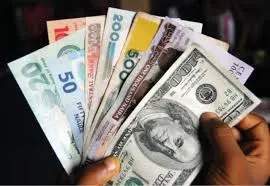Foreign investment in Nigerian stocks has reached its lowest point since President Bola Tinubu’s transformative reforms that ignited a significant equities market rally. New data from the Nigerian Exchange Limited (NGX) reveals that foreign investors purchased a total of N9.45 billion worth of stocks, marking a notable decline from N22.72 billion in June.
This downward trend is mirrored in the offloading of stocks by foreigners, which surged to N31.09 billion in July, compared to the outflow of N23.02 billion in the preceding month.
A substantial surge in foreign inflow into Nigerian stocks was witnessed in May, soaring over seven-fold to N27.51 billion – the highest level since December 2021. The market experienced a boost in the last two trading days of that month following the announcement of petrol subsidy removal by President Tinubu on May 29. This move led to the first net inflow in the market for the year, as the outflow stood at N9.65 billion, up from N4.80 billion in the previous month.
However, a foreign exchange reform followed, leading to a significant devaluation of the naira in mid-June. The uncertainties stemming from the foreign exchange market combined with potential profit-taking are believed to have contributed to the foreign investors’ exit observed in July. Ayodeji Ebo, the Managing Director and Chief Business Officer of Optimus by Afrinvest, explained, “The uncertainty in the FX market may have led to the exit observed in the month of July. In addition, profit-taking may also be a major factor for the pull-out.”
Foreign participation in the equities market demonstrated a fluctuating trend, rising to 11.51 percent in May, then declining to 11.25 percent in June, and further to 5.77 percent in July, according to NGX data.
In July, foreign investors executed transactions worth N40.54 billion (approximately $52.58 million), reflecting an 11.37 percent decrease from the previous month. Conversely, domestic deals experienced an 83.50 percent rise, amounting to N662.44 billion. The net foreign inflow was spurred by the necessity for foreign investors to reinvest dividends and sales proceeds into securities due to difficulties in accessing dollars for repatriation.
Market experts underline the imperative for bolstering foreign investors’ confidence in the Nigerian capital market. Increasing foreign exchange earnings in the medium to long term is identified as a crucial step to achieve this. The potential for more foreign portfolio investors (FPIs) entering the fixed income segment, particularly in OMO (Open Market Operations) bills, is highlighted, especially as yields improve.
The recent auctioning of OMO bills by the Central Bank of Nigeria (CBN) marked its first operation since December 29, 2022. Analysts emphasize that this move is designed to attract FPIs into the FX market, given concerns about low Treasury bill yields. However, while OMO bills offer higher rates for foreign investors, concerns arise regarding the possible divergence in interest rates.
Despite the challenges, Bismarck Rewane, Managing Director of Financial Derivatives Company Limited, noted that the NGX experienced a gain of 5.53 percent in July, albeit down from 9.38 percent in the previous month. Investors are gradually shifting focus from equities to fixed income offerings due to attractive yields.
The central bank’s continuous benchmark interest rate hikes, reaching 18.75 percent in July, have also contributed to market dynamics. The NGX’s performance, while influenced by various factors, underscores the evolving investment landscape in Nigeria’s equities market.










